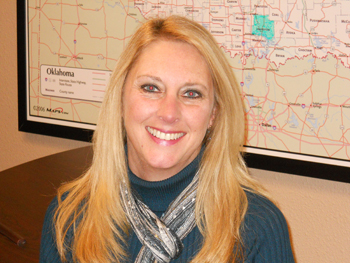 Health care for inmates! Really? I didnt know they received health care. Guess I never really thought about it.
Health care for inmates! Really? I didnt know they received health care. Guess I never really thought about it.
That is the usual response I receive when someone asks me who I work for or what I do for a living. After thinking about it for a moment, they usually ask me who pays for it. Then the questions really start to fly when they hear the answer.
Correctional health care is something the majority of the general population doesnt ever think about. The small number of people who even know of its existence are correctional officers, government employees, medical professionals, legal professionals and those of us employed by one of the private providing companies.
Along with the cost factor is the legal factor. Only those few mentioned above are the ones to think of the latter. Risk management is as critical as the appropriate health care provider. Each individual jail must take into account that part of the equation when looking at the cost and coverage.
If a jail opts to provide the medical services themselves or have a local provider, they must remember to ask, Who has my back? Dr. Johnson, owner and CEO of Advanced Correctional Healthcare, said, Inmates sue because they are unhappy.
Not unhappy because of their location, but because of their medical and personal treatment. Dr. Johnson added, They are unhappy because they are not getting what they want even though they are getting what they need. Then they are unhappy with the person not treating them how they feel they should be treated.
Litigation is a huge part of everyday life for a sheriff and his staff. With the right risk management program in place, it can become a very small factor in their everyday responsibilities and worries.
Advanced Correctional Healthcare (ACH) understands the risk associated with the provision of health care services in the correctional environment. In our opinion, risk management in corrections falls into a number of specific areas. These areas are medical malpractice, civil rights violations (8th and 14th amendments), correctional officers and medical staff at risk from litigation, risk of releasing detainees who are in need of medical services with no discharge resources, and risk of privacy violations, as applicable to the jail environment. Subsequently, there are a multitude of scenarios where contacting a medical malpractice attorney could be the only way for justice to be done, and correctional environments are no different in this respect.
In order to lower the overall risk for the county and the sheriffs department, reduce the frequency of lawsuits and hold the allocation of time and resources to a minimum, ACH has developed an aggressive risk management program that includes extensive training for our physicians, mid-levels, and nursing staff in appropriate management utilization techniques. This ACH corporate procedure clearly states that the physician at the bedside has ultimate control of the case. There is no non-medical decision maker involved in utilization. In addition, a thorough assessment in the booking area is followed by appropriate medical care monitoring, which assures that any risk of 8th and 14th amendment violation is kept to a minimum. In the event that lawsuits are presented in regards to civil rights, ACH has civil rights liability insurance. This type of insurance coverage is appropriate for the majority of lawsuits brought by detainees of a correctional facility.
The risk of health care workers and officers being infected by a detainees contagious disease (i.e., tuberculosis, HIV, hepatitis, etc.) is reduced through the identification of a communicable disease by medical staff during the early assessment screening tools, notification of all appropriate facility staff, and complete clarity in the program so that the sheriff and/or his designees are in complete control at all times.
The issue of detainees who are released in need of medical services is managed through discharge resource lists that are given to all detainees at the time of discharge. In the ACH program, all outgoing inmates are given a referral form upon leaving. This form gives them information on local community providers with addresses and phone numbers. If the medical staff is notified of the inmates impending release, the staff will emphasize the importance of appropriate follow-up, along with acknowledgement of specific appointments and medications that have been arranged for the inmate at the time of release.
In addition, Advanced Correctional Healthcare has developed an inmate medical brochure that can be customized and distributed with the countys logo and information. This is a valuable tool in assisting the inmate with understanding and treating basic medical conditions such as athletes foot, headaches, common colds, etc., and proper follow-up care. Our inmate health education materials also include approximately 40 information pieces on specific health issues that can be given to inmates as the medical needs arise.
ACH will also implement procedures relating to the documentation of all medical encounters including phone conversations with the physician. The medical staff and appropriate jail staff will be trained on the documentation procedures. This creates a paper trail relating to each encounter or conversation thereby reducing risk and liability to the medical and jail staff. A similar type of liability insurance is management liability, also known as D&O, which is coverage for businesses and their key managers, such as directors and officers.
ACH constantly stays up-to-date with the policies and procedures related to the management of risk and liability associated with the medical operation. Current knowledge of all policy changes or modifications by the NCCHC/ACH that affect the medical unit and policies will be reviewed annually, at a minimum, or as the need arises. In addition, issues relating to risk management and the medical operation will be reviewed and discussed at continuous quality improvement committee meetings.
Lastly, ACH abides by the provisions set forth in the HIPAA regulations. All medical records are confidential with information provided according to HIPAA as it applies to the correctional environment. The ACH policies and procedures also include a policy on inmate complaints, grievances and the procedures for handling such matters in accordance with HIPAA guidelines.
All inmate medical health care providers should have some type of risk management program in place. I can only speak to specifics about Advanced Correctional Healthcares particular program. This is an often forgotten item that is overlooked by some when contemplating a change in providers or starting with a privately owned provider for the first time. It is our job as a private provider to inform you of this and many other programs that are in place. One thing I learned when I started in this industry is that it isnt just about doctors, nurses and price tags.
Kathy Gallo is the marketing/training coordinator for Advanced Correctional Healthcare. Visit www.advancedch.com.





